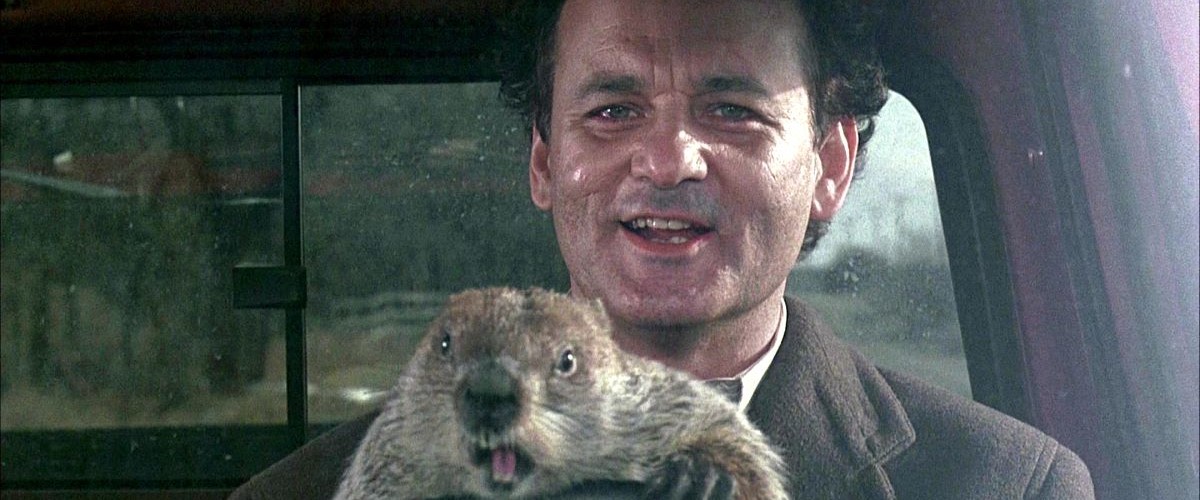There is an old belief that everyone is rewarded with the heaven or hell that he deserves. For Phil, the nasty, self-centered weather forecaster played by Bill Murray in “Groundhog Day,” that hell reveals itself one morning in the Groundhog Capitol of Punxsutawney, Pa. He has journeyed there to do a remote broadcast about his namesake, the groundhog Punxsutawney Phil, who every year informs the nation whether it will have six more weeks of winter.
Now the alarm goes off in Murray’s bed & breakfast room, and he awakens to find it is . . . Groundhog Day, all over again. It will be Groundhog Day again tomorrow, too, and on the day after that.
In another sense, tomorrow will never come. Groundhog Day will repeat itself over and over and over again, apparently until the end of time, and Phil will be permanently condemned to cover it. He’s trapped in some kind of time warp.
As Phil figures out the rules of his dilemma, we do, too.
His world is inhabited by the same people every day, but they don’t know that Groundhog Day is repeating itself. He is the only one who can remember what happened yesterday. That gives him a certain advantage: He can, for example, find out what a woman is looking for in a man, and then the “next” day he can behave in exactly the right way to impress her.
Luckily there is a woman close at hand to practice on. She’s Rita (Andie MacDowell), Phil’s long-suffering producer, who has had to put up with his tantrums, demands, surliness and general lack of couth. As day follows day, Phil is gradually able to see the error of his ways, and improve his behavior until finally, to her surprise, a Groundhog Day dawns when she finally likes him.
The movie is basically a comedy, but there’s an underlying dynamic that is a little more thoughtful. Like “Scrooged,” Murray’s dreary 1988 film, this is a movie about a grouch in the process of self-redemption: A supernatural force is showing him his weaknesses.
Another movie that comes to mind is “It's a Wonderful Life,” although that film showed James Stewart how bad life would have been without his help, and this one shows Murray that people might actually have been cheerier without his contributions.
“Groundhog Day” was directed and cowritten by Harold Ramis, Murray’s fellow Ghostbuster and a partner from their Second City days. The film is lovable and sweet. If “Scrooged” seemed to reflect a dour discontent, this one is more optimistic about the human race, and the Murray character is likable by the end. That’s a mixed blessing, since Murray is funnier in the early scenes in which he is delivering sardonic weather reports and bitterly cursing the fate that brought him to Punxsutawney in the first place.
Formula comedies are a dime a dozen. Those based on an original idea are more rare, and “Groundhog Day,” apart from everything else, is a demonstration of the way time can sometimes give us a break. Just because we’re born as SOBs doesn’t mean we have to live that way.




















